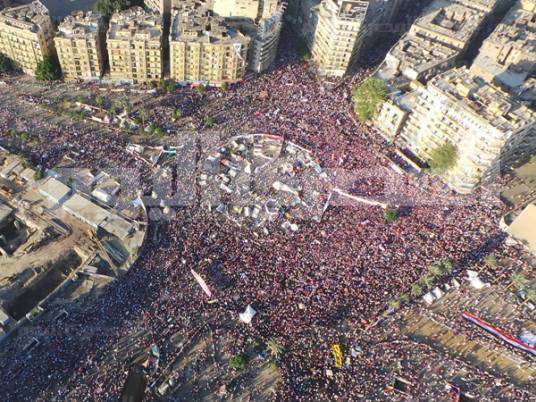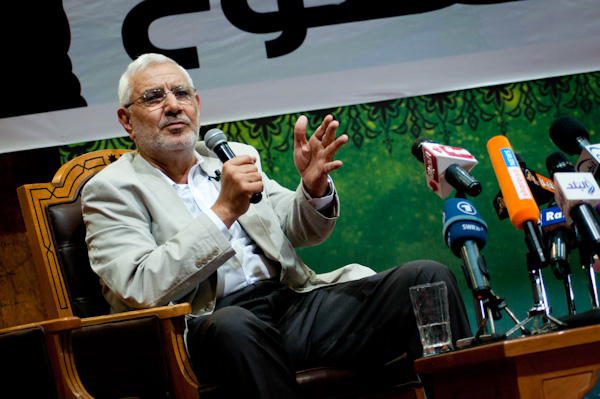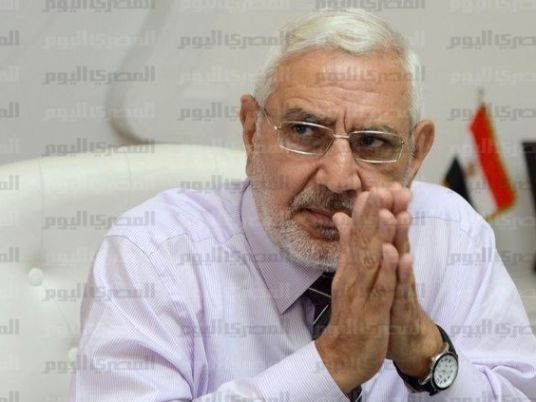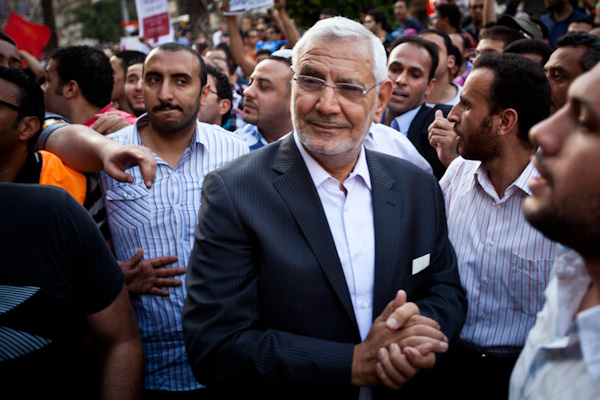Before the elections, I believed it was extremely difficult to predict the outcome of the first round and that it was only possible to make projections with little accuracy. I believed the presidential election would give us insight into the intricacies of the Egyptian society and its genuine political preferences.
The result of the first round was shocking to observers and provided a mixed set of negative and positive indicators. The surprises included the disconcerting rise of former Prime Minister Ahmed Shafiq and the widespread support for Hamdeen Sabbahi as well as the electoral failure of Abdel Moneim Abouel Fotouh’s project, which supposedly provided a revolutionary democratic option from inside the Islamist camp that surpassed Islamist-liberal disagreements.
There was also the relative decline of the Muslim Brotherhood, even though their candidate, Mohamed Morsy, topped the list of presidential candidates in the first round.
The final surprise was the little support for Amr Moussa, who came in fifth, contrary to the results of opinion polls which suggested he would lead in the first round.
The outcome of the first round necessitates that we examine the results to understand what happened, particularly since I was one of those who imagined that Abouel Fotouh was capable of ousting both the Brotherhood and former regime remnants from the first round.
I am still not persuaded by Sabbahi’s political project and believe that my choice of Abouel Fotouh was logical at the time. Nevertheless, the results Sabbahi achieved and the widespread support he garnered from major revolutionary and popular sectors, particularly in urban areas, demonstrate that we have over-estimated the popular support for Abouel Fotouh. In addition, Sabbahi’s result shows that considerable sectors of people saw in him a better revolutionary option that is more expressive of their dreams and of their search for freedom, dignity, democracy, justice and the establishment of a civil state.
We thus need to engage in some self-criticism to understand why we failed to properly gauge support for Abouel Fotouh. In my opinion, Abouel Fotouh received the support of three important popular sectors, though he did not garner enough support within each of these camps individually. He managed to get the support of the internally divided camp of revolutionary Islamists, the Salafis, as well as the support of a segment of the middle class, who do not ascribe to any polarized blocs. But the larger part of that middle class supported Sabbahi, as it turned out.
Abouel Fotouh was not abandoned by the Salafis, as some say. Salafis indeed rallied support for Abouel Fotouh in their strongholds, where he did achieve good results, such as in Beheira, Damietta, Fayoum, Marsa Matrouh and even in Alexandria.
In Alexandria, Abouel Fotouh got more votes than Morsy. Admittedly, support for Abouel Fotouh in Alexandria did not measure up to expectations, but that was only because Salafis were not as enthusiastic in fighting that battle which they did not see as primarily theirs — some Salafis were not enthusiastic about supporting a non-Salafi candidate as a strategy of political adaptability. Besides, there are also divisions within the ranks of Salafis, the ramifications of which I also failed to consider when estimating the vote for Abouel Fotouh.
Furthermore, it appears that the Salafi vote he gained did not compensate for would-be voters that he lost from the non-Islamist camp.
Also, swing voters — who only made up their minds just before the day of the election and who constitute the biggest bloc of voters in the Egyptian case — may have opted against Abouel Fotouh, whom they did not view as distinct from the Brotherhood, preferring instead to go for Sabbahi.
Abouel Fotouh’s decline may also be attributed to the failure of his discourse in the decisive weeks ahead of the vote. Abouel Fotouh failed to address the people in simple terms or to tackle the economic and social problems of the swing voters, using a language other than the complicated language of his long platform.
Indeed, his platform has addressed those problems, but members of his campaign did not realize that the mental image a candidate creates has greater impact on people than written platforms. This image is created by his discourse, language, ability to communicate and other elements, which he, in fact, masters.
Finally, the Salafis and Jama’a al-Islamiya’s support for Abouel Fotouh may have weakened his chances of getting the more moderate Brotherhood votes. Furthermore, their support has led him into the trap of the controversies surrounding the establishment of a religious state — implementation of Sharia, freedom of belief, production of liquor and other problematic issues — and pushed him to adopt defensive positions that rebuffed yet more voters.
We need to engage in some self-criticism to recognize our failure to predict the rise of Sabbahi and how he represented a revolutionary alternative to several members of the lower and middle classes who want change at the economic and social levels and who are at the same time discontent with Islamists. Those saw in Sabbahi the only attractive and coherent alternative to Abouel Fotouh.
We also need to question some of the ideas that observers have marketed to us, such as the allegation that former regime networks — including businessmen, security apparatuses and the state’s administrative institutions, often termed the “Deep State” — have faltered. Those who adopt this view cite the failure of former regime parties in the parliamentary elections as proof.
However, it is now clear that those networks are still strong and influential, taking into consideration the support they gave to Ahmed Shafiq, who led the vote in several Delta and Upper Egyptian governorates.
Analysis of the vote for Shafiq suggests those who voted for him wanted security and stability after a year of intimidation, lack of security and unfaltering attempts to smear the revolution. Others attribute Shafiq's rise to the fact that revolutionary powers have failed to reach out. Unwavering support for Shafiq from those who benefit from the authoritative, police state and the sectarian vote are other factors that led him to second place.
Observers claimed that the parliamentary elections have clearly demonstrated the nature of the new political sphere, which again turned out to be inaccurate. The parliamentary elections have shown that the parliamentary polls were only a single process in a highly fluid and precarious political environment that involves interplay between authoritative institutions and new political actors.
The influence we think the Brotherhood has is another factor we need to reconsider. Even though Morsy leads the race, support for the Brotherhood has dwindled from 40 percent in the parliamentary elections to 25 percent in the presidential polls. More importantly, the Brotherhood has achieved bad results in the bigger cities, such as Cairo and Alexandria.
In fact, their mediocre performance in their traditional strongholds of Sharqiya, Daqahlia and Gharbiya, where Shafiq took the lead, should push us to review our assessment of the political importance of the Brotherhood.
Pessimism regarding the future of the revolution is also wrong. Sixty-five percent of all voters chose candidates who do not belong to the former regime and 38 percent picked Sabbahi and Abouel Fotouh. This is a considerable bloc, bigger than either the Brotherhood or the feloul blocs.
This third bloc will remain dissatisfied with the current conditions and so their future action will impact how stable the country will be, as well as shape the fledgling political sphere.
Finally, the collapse of Moussa signals the failure of media elites and specialized governmental think tanks that produce opinion polls. They had put Moussa at the top ahead of the vote, which casts suspicions over their professionalism and credibility and almost surely exposes their bias.
Moussa’s loss is also attributable to the fact that he is a candidate with no clear-cut inclinations, for he is neither a candidate who advocates change, nor a candidate who belongs to the former regime. He has no ideological or political preferences to the right or the left.
Even his image as an experienced statesman was distorted by his old age and the vulnerable, helpless, superficial image he conveyed of himself in the televised presidential debates.
The result of the vote has shown that Egyptians have preferred the well-defined options; voters could be accordingly categorized as follows: the conservative pro-police state group (who voted for Shafiq), the Brotherhood’s constituency (who voted for Morsy), and the pro-change camp (who voted Abouel Fotouh and Sabbahi).
Finally, the elections have had the positive impact of revealing the truth about the problems and the scope of action of all parties, including the Brotherhood, Salafis, the regime, revolutionary powers and the media elite. Above all, analysts are required to review their opinions in light of the complex and ever-changing phenomena on the political scene, and hence the need for self-criticism and a search for fresh approaches.
Ashraf El-Sherif teaches political science at the American University in Cairo.
Translated by Dina Zafer.




